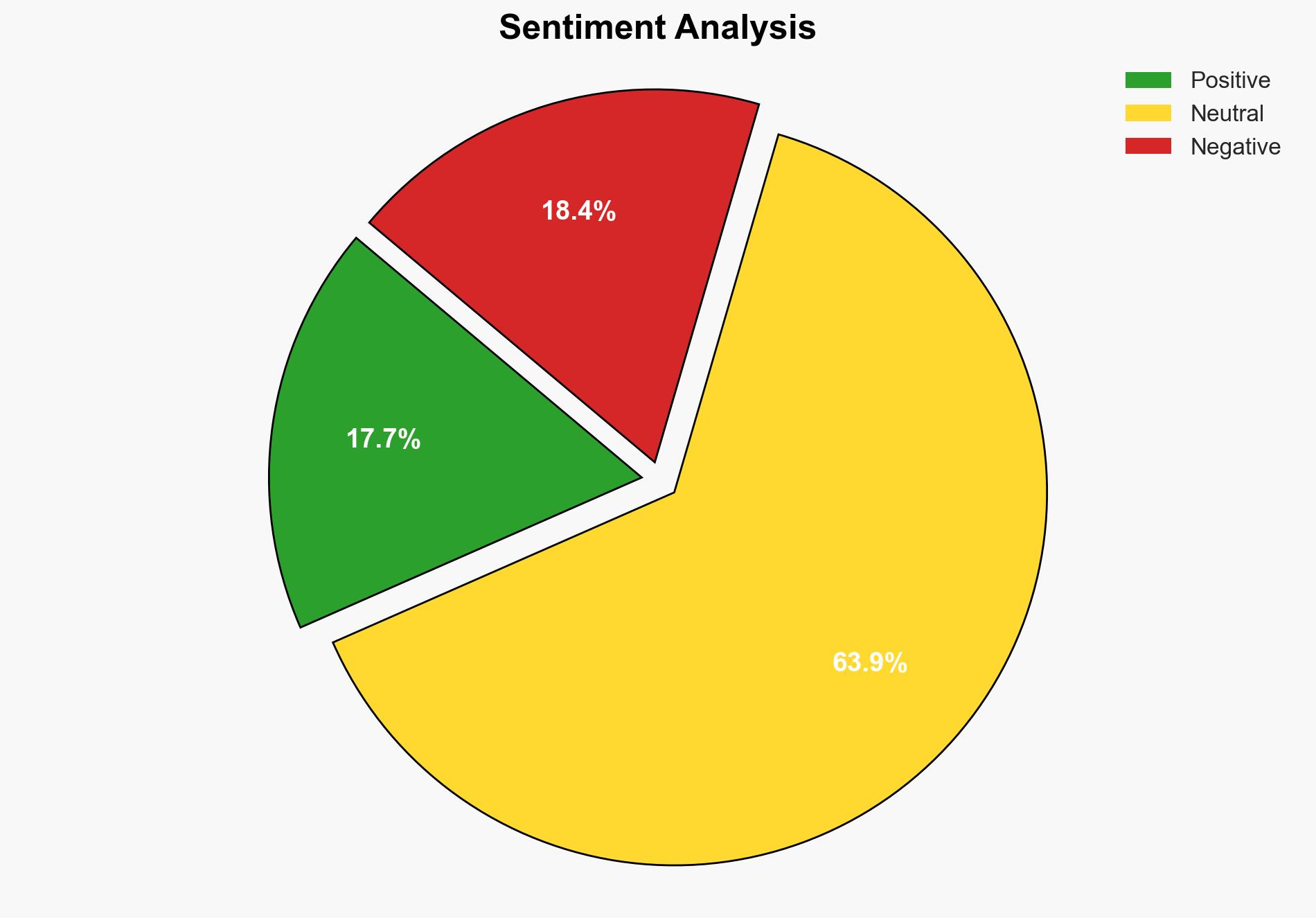Threat Actors Abuse Trust in Cloud Collaboration Platforms – Infosecurity Magazine
Published on: 2025-03-26
Intelligence Report: Threat Actors Abuse Trust in Cloud Collaboration Platforms – Infosecurity Magazine
1. BLUF (Bottom Line Up Front)
Threat actors are increasingly exploiting the inherent trust in cloud-based document platforms such as Adobe, Dropbox, and Docusign to conduct phishing campaigns. These platforms’ widespread adoption in both corporate and personal environments allows attackers to bypass security measures, leading to credential theft. Immediate implementation of enhanced security protocols and user education is recommended to mitigate these risks.
2. Detailed Analysis
The following structured analytic techniques have been applied for this analysis:
General Analysis
Recent observations indicate a growing trend in phishing campaigns leveraging trusted online document platforms. Threat actors exploit these platforms to evade secure email gateways and steal credentials. The platforms identified include Adobe, Docusign, Dropbox, Canva, and Zoho. The trust these platforms have in corporate and personal environments makes them attractive targets for attackers, who can bypass security filters and deliver malicious content directly to users.
The report highlights that these platforms’ features, such as automatic notifications and link expiration mechanisms, inadvertently aid attackers. For instance, Docusign’s link expiration can hinder post-attack investigations, while Dropbox and Adobe allow malicious documents to remain active for extended periods, facilitating prolonged phishing campaigns.
3. Implications and Strategic Risks
The misuse of cloud collaboration platforms poses significant risks to national security, regional stability, and economic interests. The ability of threat actors to impersonate trusted colleagues or business partners can lead to widespread data breaches and financial losses. The persistence of malicious documents online increases the likelihood of successful attacks, potentially compromising sensitive information and disrupting organizational operations.
4. Recommendations and Outlook
Recommendations:
- Enhance security protocols by implementing multi-factor authentication and behavioral analysis tools to detect suspicious activities.
- Conduct regular user education programs to raise awareness about phishing tactics and encourage cautious behavior when interacting with shared documents.
- Advocate for regulatory changes that require cloud service providers to implement stricter security measures and faster response times for takedown requests.
Outlook:
In the best-case scenario, increased awareness and improved security measures will significantly reduce the success rate of phishing campaigns. In the worst-case scenario, continued exploitation of these platforms could lead to major data breaches and financial losses. The most likely outcome is a gradual improvement in security practices, with organizations adopting more robust defenses against these evolving threats.
5. Key Individuals and Entities
The report mentions significant entities such as Adobe, Docusign, Dropbox, Canva, and Zoho. These platforms are central to the analysis due to their role in the observed phishing campaigns. Cofense is identified as a key source of intelligence in this context.





